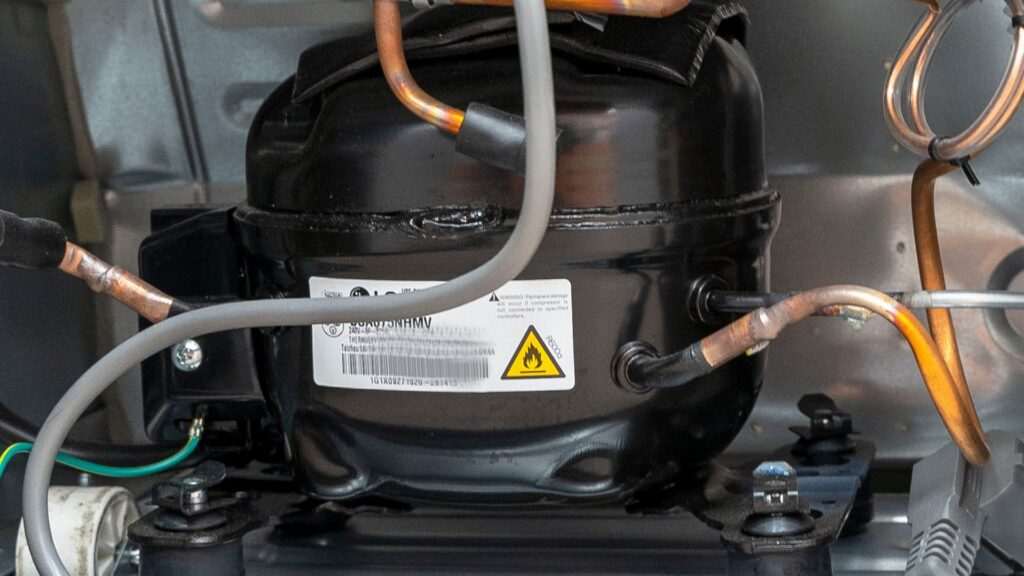As a dishwasher user, have you ever wondered how this kitchen appliance works its magic? Dishwashers save us a great deal of time and effort, especially when you’re dealing with a pile of dirty dishes after a party. However, do you ever think about what’s going on inside it? This blog post aims to give you a comprehensive guide on how dishwashers work.
Understanding the Important Parts of Your Dishwasher
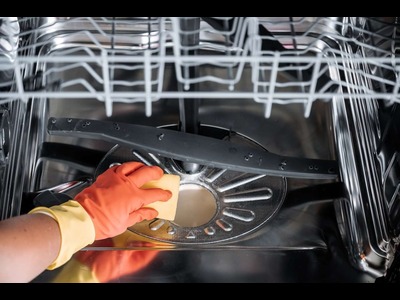
1. Dishwasher Filters: Filters are an essential part of any dishwasher. It works by preventing loose bits of food, plastics, and other debris from clogging up your dishwasher’s pump and spray arm systems.
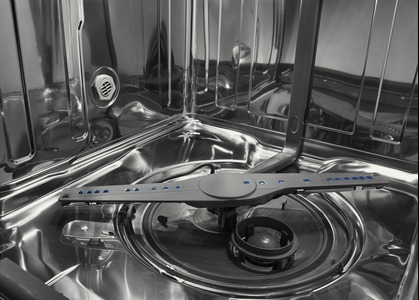
2. Spray Arms: Spray arms are another essential part of your dishwasher. These parts have small holes that release water and detergent to clean your dishes.
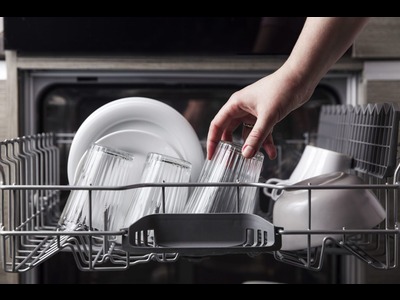
3. Dishwasher Racks: Dishwasher racks hold your dishes in place for cleaning, and they come in different sizes and shapes. There are upper and lower racks, and some dishwashers have third racks you can use for odd-shaped items like knives and spoons.
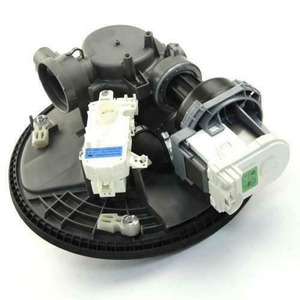
4. Pump and Motor: The pump and motor are crucial components of the dishwasher system. They work together to circulate water throughout the dishwasher, providing the necessary pressure to move water through the spray arms.
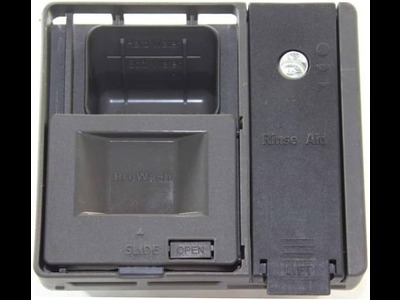
5. Dishwasher Detergent Dispenser: A Dishwasher detergent dispenser releases detergent into the dishwasher at the appropriate time during the cycle. When detergent dispenses correctly, it guarantees that your dishes are clean and sparkling.
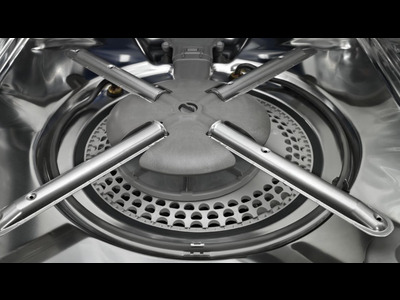
6. Heating Element: To ensure your dishes are properly dried after a wash cycle, the dishwasher comes with a heating element located at the bottom of your dishwasher.
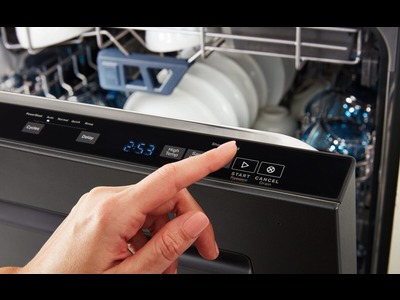
7. Control Panel: The control panel is a vital part of your dishwasher that acts as a communicator between the user and the appliance
How do dishwashers work?
Dishwashers function by spraying hot water and detergent onto the dirty dishes. This process is possible due to several essential parts of a dishwasher like the motor that powers the pump, the water inlet valve, and the spray arms that move around to ensure water and detergent reach every part of the dishwasher.
Water Intake:
The dishwasher cycle begins with the intake of water. A solenoid valve controls the flow of water from your home’s supply, which then enters the dishwasher through a hose. Before reaching the cleaning section, the water is heated to around 120-160°F for optimal cleaning.
Pump:
The pump is responsible for circulating water throughout the dishwasher. There are two types of pumps: one for pumping water in and another for pumping water out.
Heating Element:
The heating element is responsible for heating up the water to the desired temperature for the wash cycle. This is important for effective cleaning and disinfecting of your dishes.
Detergent Dispenser:
In modern dishwashers, adding detergent is as simple as loading it into a dispenser. The dispenser door opens during the wash cycle to release the detergent, which mixes with the hot water.
Spray Arms:
Once the heated water with detergent is in the dishwasher, it’s time to start cleaning! A pump circulates the water throughout the dishwasher and pressurizes it, pushing the water through the spray arms. Spray arms are the most critical components of the dishwasher as they blast your dishes with hot water at a pressure of around 60 psi.
Drainage:
After the cleaning is done, the used water is drained out of the dishwasher through a drain hose. A drain pump usually works to direct the water to the drainage pipe through the hose.
Drying:
Finally, the drying cycle commences. After the draining phase, the dishwasher instructs a heating element to warm the air inside the dishwasher. The moist air is expelled through vents, and the cooler air comes through to replace it. As a result, dishes are allowed to dry after the washing cycle is complete.
Control Panel:
The control panel allows you to select the wash cycle and other options such as delay start or sanitizing settings.
How do I load my dishwasher correctly?
The proper way to load your dishwasher is to place dishes facing the center of the machine, with the dirtier side towards the center of the spray arm. Do not overload the dishwasher, and make sure that your dishes are not obstructing the spray arms. Additionally, make sure that any large items like pots or pans are placed at the bottom of the machine.
How do I maintain my dishwasher?
To ensure that your dishwashers work efficiently, you should regularly clean the dishwasher’s interior and exterior, check for leaks, replace broken or worn-out parts, and descale the machine if you have hard water. Additionally, cleaning the dishwasher filter and inspecting the spray arms for blockages can also prevent water damage. Here gives the ultimate tips and guidelines:
Optimize the loading of your dishwasher
Proper loading of your dishwasher is essential in preventing problems like overloading, uneven washing, and broken dishes. Proper loading will facilitate an efficient flow of water and detergent across the dishes. Refer to your user manual to help with the proper positioning of the dishes in the dishwasher.
Use the right detergent:
Choosing the right detergent is as important as loading the dishwasher properly. Make sure to use a detergent that is formulated for dishwashers and should not contain too many phosphates, which can be harmful to the environment. Also, be aware that less is more when it comes to dishwasher detergent. Using too much detergent can leave a film on your dishes and can also cause problems for your dishwasher, such as clogging the spray arm.
Run your dishwasher correctly:
Running your dishwasher at the right time of the day will ensure that it runs smoothly. Try to run your dishwasher at night, or during off-peak hours if you have an energy-efficient dishwasher. This will help in the reduction of the cost of electricity. Also, use the correct wash cycle depending on the type of dishes you are washing. For example, use a heavy cycle for pots and pans, and a delicate cycle for glassware and other fragile items.
Clean your dishwasher regularly:
Cleaning your dishwasher is one of the most important things you can do to keep it running and dishwashers work efficiently. Regular cleaning of the filters and spray arms will help to prevent clogs and ensure that your dishes are cleaned properly. Also, make sure that the dishwasher is wiped down after each use to prevent buildup and residue.
Maintain your dishwasher:
Proper maintenance is vital to preserve the life of your dishwasher. Make sure that you regularly inspect the dishwasher for any leaks or other issues. Also, lubricate the dishwasher racks and hinges to prevent rusting and deterioration.
How often should I clean my dishwasher?
It is important to clean your dishwasher every month to prevent food particles and buildup from clogging the spray arms. You can run an empty cycle with vinegar or a dishwasher cleaner to help remove any buildup. Additionally, it is important to keep your dishwasher filter clean, which can be done through regular inspection and cleaning. And check dishwashers work properly.
Can dishwashers wash every type of dish?
Dishwashers are designed to wash a range of dishes such as glassware, ceramic dishes, plastic utensils, and non-stick pots and pans. However, some items like wooden utensils, aluminum cookware, and fragile dishes may be damaged due to the high heat or pressure of the dishwasher cycle.
What’s the difference between a dishwasher and hand washing?
While hand-washing dishes have been around for ages, washing dishes in a dishwasher saves time, effort, water, and energy. Compared to hand washing, dishwashers clean dishes with hot water, a strong detergent, and high water pressure, ensuring proper sterilization. Additionally, dishwashers use a fraction of the water required for hand washing.
Conclusion:
A dishwasher is an essential appliance for any home or commercial kitchen. Understanding how dishwashers work can help you operate them more efficiently and take proper care of them. By following the tips and guidelines shared in this blog post, you can maximize your dishwasher’s performance and keep it in excellent condition for years to come. Happy dishwashing!
FAQs
A: Yes, but always make sure they’re securely placed and don’t touch the heating element.
A: Yes, Silverware can be washed in the dishwasher, but delicate pieces should be hand washed.
A: You may have overcrowded the dishwasher or not used the suitable cycle for the type of dirty dishes you have. Alternatively, there may be an issue with the dishwasher’s filters, spray arms, heating element, or water pump.


